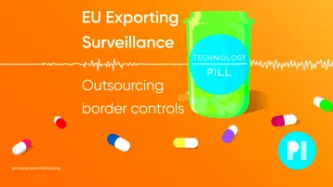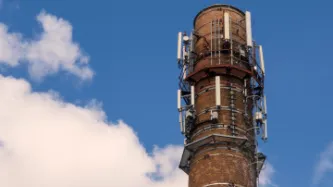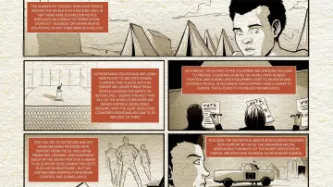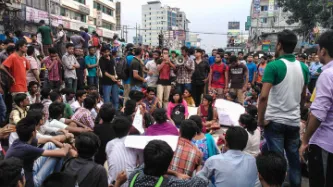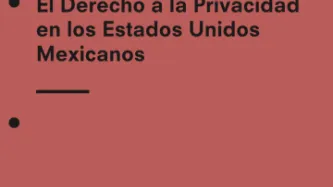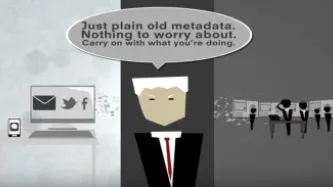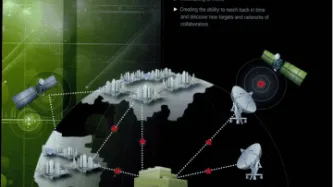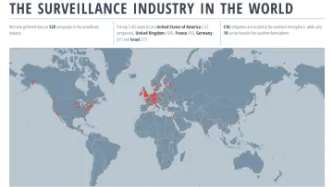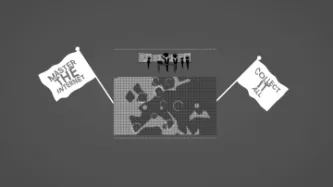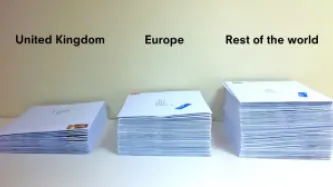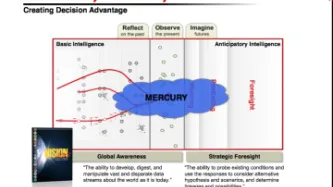Search
Content type: Video
**Language advisory: Gus does several swearwords this episode including one f-word at 9:45
From surveillance drones to cameras to wiretapping and more - the EU are providing technologies that will be used to crush political and civil freedoms and undermine democracy without urgent reforms
Find out more:
https://privacyinternational.org/long-read/4288/borders-without-borders-how-eu-exporting-surveillance-bid-outsource-its-border
https://privacyinternational.org/…
Content type: Press release
Today, the ICO has issued a long-awaited and critical report on Police practices regarding extraction of data from people's phones, including phones belonging to the victims of crime.
The report highlights numerous risks and failures by the police in terms of data protection and privacy rights. The report comes as a result of PI’s complaint, dating back to 2018, where we outlined our concerns about this intrusive practice, which involves extraction of data from devices of victims, witnesses…
Content type: Long Read
There are few places in the world where an individual is as vulnerable as at the border of a foreign country.As migration continues to be high on the social and political agenda, Western countries are increasingly adopting an approach that criminalises people at the border. Asylum seekers are often targeted with intrusive surveillance technologies and afforded only limited rights (including in relation to data protection), often having the effect of being treated as “guilty until proven…
Content type: Explainer
In a scramble to track, and thereby stem the flow of new cases of Covid-19, Governments around the world are rushing to track the locations of their populace. One way to do this is to leverage the metadata held by mobile service providers (telecommunications companies - "Telcos" - such as Hutchison 3 (Also known as Three), Telefonica (Also known as O2), Vodafone, and Orange) in order to track the movements of a population, as seen in Italy, Germany and Austria, and with the European Commission…
Content type: Examples
Mexico is one of the biggest buyers of next-generation surveillance technology. And now data leaked to Forbes indicates it's taken an unprecedented step in becoming the first-known buyer of surveillance technology that silently spies on calls, text messages and locations of any mobile phone user, via a long-vulnerable portion of global telecoms networks known as Signalling System No. 7 (SS7).
The revelation was contained in what an anonymous source close claimed was…
Content type: Examples
The whistleblower said they were unable to find any legitimate reason for the high volume of the requests for location information. “There is no other explanation, no other technical reason to do this. Saudi Arabia is weaponising mobile technologies,” the whistleblower claimed.
The data leaked by the whistleblower was also seen by telecommunications and security experts, who confirmed they too believed it was indicative of a surveillance campaign by Saudi Arabia.
The data shows requests for…
Content type: Examples
8 europeans telecoms providers (Vodafone, Deutsche Telekom, Orange,Telefonica, Telecom Italia , Telenor, Telia and A1 Telekom Austria) have agreed to share mobile phone location data with the European Commission to track the spread of the coronavirus.
The Commission said it would use anonymsed data and aggregated mobile phone location to coordinate the tracking of the virus spread. They also announced the data would be deleted after the crisis.
Source: https://www.reuters.com/article/us-…
Content type: Explainer
In a scramble to track, and thereby stem the flow of, new cases of Covid-19, Governments around the world are rushing to track the locations of their populace. One way to do this is to write a smartphone app which uses Bluetooth technology, and encourage (or mandate) that individuals download and use the app. We have seen such examples in Singapore and emerging plans in the UK.
Apps that use Bluetooth are just one way to track location. There are several different technologies in a smartphone…
Content type: Examples
Together with Norwegian company Simula the Norwegian Institute of Public Health is developping a voluntary app to track users geolocation and slow the spread of Covid-19. Running in the background, the app will collect GPS and Bluetooth location data and store them on a server for 30 days. If a user is diagnosed with the virus, its location data can be user to trace all the phones that have been in close contact with the person. Authorities will use this data to send an SMS only to those phones…
Content type: Examples
UK: O2 shares aggregated location data with government to test compliance with distancing guidelines
Mobile network operator O2 is providing aggregated data to the UK government to analyse anonymous smartphone location data in order to show people are following the country's social distancing guidelines, particularly in London, which to date accounts for about 40% of the UK's confirmed cases and 30% of deaths. The project is not designed to monitor individuals. Lessons from the impact on London of travel restrictions could then be applied in the rest of the country. The government says it has…
Content type: Examples
BT, owner of UK mobile operator EE, is in talks with the government about using its phone location and usage data to monitor whether coronavirus limitation measures such as asking the public to stay at home are working. The information EE supplies would be delayed by 12 to 24 hours, and would provide the ability to create movement maps that show patterns. The data could also feed into health services' decisions, and make it possible to send health alerts to the public in specific locations.…
Content type: News & Analysis
In mid-2019, MI5 admitted, during a case brought by Liberty, that personal data was being held in “ungoverned spaces”. Much about these ‘ungoverned spaces’, and how they would effectively be “governed” in the future, remained unclear. At the moment, they are understood to be a ‘technical environment’ where personal data of unknown numbers of individuals was being ‘handled’. The use of ‘technical environment’ suggests something more than simply a compilation of a few datasets or databases.
The…
Content type: News & Analysis
Today Advocate General (AG) Campos Sánchez-Bordona of the Court of Justice of the European Union (CJEU), issued his opinions (C-623/17, C-511/18 and C-512/18 and C-520/18) on how he believes the Court should rule on vital questions relating to the conditions under which security and intelligence agencies in the UK, France and Belgium could have access to communications data retained by telecommunications providers.
The AG addressed two major questions:
(1) When states seek to impose…
Content type: Impact Case Study
What HappenedOn 5 June 2013, The Guardian published the first in a series of documents disclosed by Edward Snowden, a whistleblower who had worked with the NSA. The documents revealed wide-ranging mass surveillance programs conducted by the USA’s National Security Agency (NSA) and the UK’s Government Communications Headquarters (GCHQ), which capture the communications and data of hundreds of millions of people around the world. In addition to revealing the mass surveillance programs of the NSA…
Content type: News & Analysis
European leaders met last week in Brussels to discuss what is supposed to be two separate issues, the next trillion euro-plus budget and migration. In truth, no such separation exists: driven by nationalists and a political mainstream unable to offer any alternative but to implement their ideas, the next budget is in fact all about migration.
This strategy contained within the budget will get the approval of Hilary Clinton, who recently told the Guardian that ‘Europe needs to get a handle on…
Content type: Long Read
Creative Commons Photo Credit: Source
UPDATE: 30 July 2019
Privacy International has identified the following:
Two RAB officers received approval to travel to the USA in April 2019 for training on “Location Based Social Network Monitoring System Software for RAB Intelligence Wing”
Three RAB officers received approval to travel to Russia in August 2017 to participate in user training of “Backpack IMSI Catcher (2G, 3G, 4G)” paid for by Annex SW Engineering, a…
Content type: Advocacy
Este informe es presentado por la Red en Defensa de los Derechos Digitales (R3D) y Privacy International (PI). La Red en Defensa de los Derechos Digitales (R3D) es una organización no gubernamental, sin fnes de lucro, ubicada en México, dedicada a la defensa de los derechos humanos en el entorno digital. Privacy International (PI) es una organización no gubernamental sin fnes de lucro ubicada en Londres enfocada en la defensa, promoción y protección del derecho a la privacidad alrededor del…
Content type: Impact Case Study
What is the problem
For over two decades we have been documenting an alarming use and spread of surveillance. It is no longer just the wars on terror or drugs or migration that is driving this trend. The management of health crises and distribution of welfare regularly are among others being used to justify this turn to increasingly invasive forms of surveillance. From country to country we see the same ideas and the same profiteers expanding their reach.
When we first released our report on…
Content type: Impact Case Study
What happenedGovernments continuously seek to expand their communications surveillance powers. In the 1990s it was in the context of applying telephone surveillance laws to the internet. In the 2000s a spate of new laws arrived in response to 9/11. Expansions were then sought to monitor over-the-top services within the framing of Web 2.0. Then in the post-Snowden environment Governments rushed to legislate their previously secret powers.What we didWe supported…
Content type: Press release
We found this picture here.
Privacy International has today a issued a formal complaint to the UK Information Commissioner about the police’s use of intrusive ‘mobile phone extraction’ technology, enabling them to download all of the content from a person’s phone — without a warrant, and whether they are suspect, witness or even victim of a crime. Further complaints have also been sent to the Home Office and the Independent Office for Police Conduct, calling for urgent reforms to a totally…
Content type: Long Read
Image: Eric Jones
The UK government last week hosted hundreds of surveillance companies as it continues to try and identify “technology-based solutions” able to reconcile the need for controls at the Irish border with the need to avoid them.
The annual showcase conference of 'Security and Policing' brings together some of the most advanced security equipment with government agencies from around the world. It is off limits to the public and media.
This year’s event came as EU and UK…
Content type: Explainer
Phone networks are divided between two networks: the physical and the mobile. The physical runs on the Public Switched Telephone Network (PSTN) that serves your home phone. Mobile networks are dominant in the age of communication and are used to relay mobile communications to the PSTN. The most prominent mobile networks are GSM networks (Global System for Mobile communications) and are what we use everyday to communicate with one another. Another system is known as CDMA (Code Division Multiple…
Content type: Explainer
Video surveillance technologies are deployed in public and private areas for monitoring purposes. Closed-circuit television (CCTV)– a connected network of stationary and mobile video cameras– is increasingly used in public areas, private businesses and public institutions such as schools and hospitals. Systems incorporating video surveillance technologies have far greater powers than simply what the camera sees. Biometric technologies use the transmitted video to profile, sort and identify…
Content type: Explainer
What is the Global Surveillance Industry?
Today, a global industry consisting of hundreds of companies develops and sells surveillance technology to government agencies around the world. Together, these companies sell a wide range of systems used to identify, track, and monitor individuals and their communications for spying and policing purposes. The advanced powers available to the best equipped spy agencies in the world are being traded around the world. It is a…
Content type: News & Analysis
On Friday, we wrote to 140 companies around the world that are known to be selling surveillance technology, to ask them a series of questions. We wanted to know whether or not companies conducted human rights due diligence when dealing with foreign companies or governments, how many of them were doing business or seeking to do business with 'Not Free' countries (as categorised by Freedom House's latest report), and whether any of them would be interested in meeting with us to discuss their…
Content type: News & Analysis
Privacy International welcomes reports that the French Government has come out against the export of surveillance technology to oppressive regimes. According to the French website reflets.info, the State Secretary for the Digital Economy Fleur Pellerin announced her opposition to such exports last Friday, during a radio show hosted by Le Monde and public broadcaster FranceCulture. The statement may indicate a sea change in the government's policies regarding surveillance technology, which have…
Content type: Press release
Privacy International today received an email from Saul Olivares, Sales and Marketing Director of Creativity Software, in response to the letter we sent to Creativity CEO Richard Lee yesterday.
Mr Olivares directed PI to an attached statement, in which Creativity stated that it was:
…proud to be a supplier of world class technology to MTN, in Iran and other countries. MTN is a company with the vision of being the leading telecommunications provider in emerging markets, with an avowed mission…
Content type: Long Read
“FISA section 702 reauthorisation” might not sound like it matters very much to very many people, but it’s pretty dramatic: in short, last month US lawmakers rejected a bill which would have provided protections for US citizens – constitutionally protected against being spied on by US spy agencies – from being spied on, and instead voted to extend their powers to do so.
In the fall out, it’s worth considering just why such mass surveillance powers are such a big issue, how the promise of…
Content type: Long Read
Privacy International is celebrating Data Privacy Week, where we’ll be talking about privacy and issues related to control, data protection, surveillance and identity. Join the conversation on Twitter using #dataprivacyweek.
Exercising the right to privacy extends to the ability of accessing and controlling our data and information, the way it is being handled, by whom, and for what purpose. This right is particularly important when it comes to control of how States perform these activities.…
